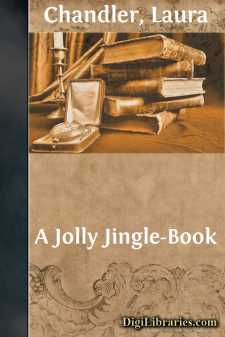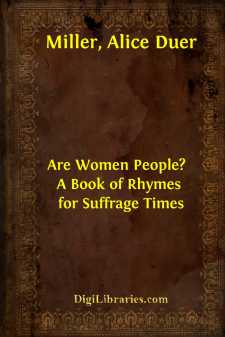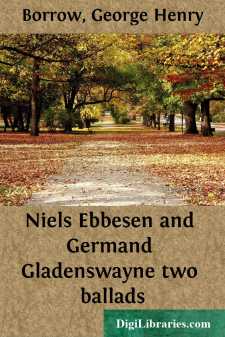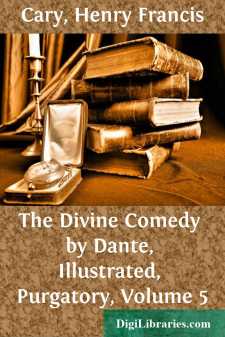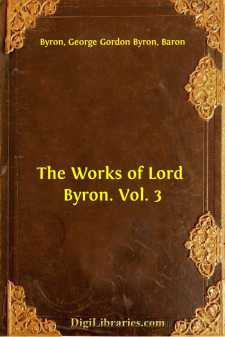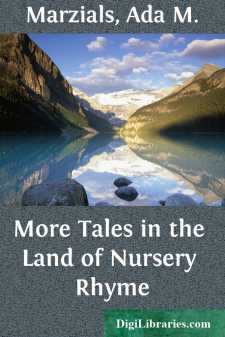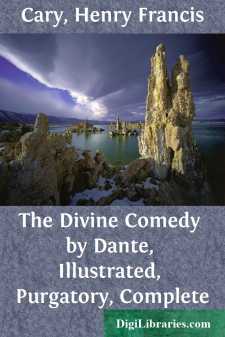Poetry Books
Sort by:
by:
Laura Chandler
A JOLLY BOOK How can they put in black and whiteWhat little children think at night,When lights are out and prayers are said,And you are all tucked up in bed? Such funny dreams go dancing throughYour head, of things nobody knew,Or saw, or ever half believes!—They're all inside these singing leaves. And little children laugh and goA-ring-a-round-a-rosy-O;And birds sing gay—you'd almost...
more...
by:
Thomas Moore
THOMAS MOORE Thomas Moore was born in Dublin on the 28th of May 1780. Both his parents were Roman-Catholics; and he was, as a matter of course, brought up in the same religion, and adhered to it—not perhaps with any extreme zeal—throughout his life. His father was a decent tradesman, a grocer and spirit-retailer—or "spirit-grocer," as the business is termed in Ireland. Thomas received his...
more...
No species of poetry is more ancient than the lyrical, and yet none shows so little sign of having outlived the requirements of human passion. The world may grow tired of epics and of tragedies, but each generation, as it sees the hawthorns blossom and the freshness of girlhood expand, is seized with a pang which nothing but the spasm of verse will relieve. Each youth imagines that spring-tide and love...
more...
ARE WOMEN PEOPLE? A Consistent Anti to Her Son("Look at the hazards, the risks, the physical dangers that ladies would be exposed to at the polls."—Anti-suffrage speech.)You're twenty-one to-day, Willie, And a danger lurks at the door, I've known about it always, But I never spoke before; When you were only a baby It seemed so very remote, But you're twenty-one to-day, Willie,...
more...
NIELS EBBESEN. All his men the Count collects, And from Slesvig marched away;Never such as host was seen Or before or since that day. Into Denmark marched the Count, Followed by so fair a band;Banners twenty-four they bore, Power like theirs might none withstand. Gert the Count to Randers rode, To bad counsel lending ear;For from old it stood foretold, He should end there his...
more...
CANTO XXVI While singly thus along the rim we walk'd,Oft the good master warn'd me: "Look thou well.Avail it that I caution thee." The sunNow all the western clime irradiate chang'dFrom azure tinct to white; and, as I pass'd,My passing shadow made the umber'd flameBurn ruddier. At so strange a sight I mark'dThat many a spirit marvel'd on his way. This bred...
more...
INTRODUCTION TO THE OCCASIONAL PIECES (POEMS 1809-1813; POEMS 1814-1816). The Poems afterwards entitled "Occasional Pieces," which were included in the several editions of the Collected Works issued by Murray, 1819-1831, numbered fifty-seven in all. They may be described as the aggregate of the shorter poems written between the years 1809-1818, which the author thought worthy of a permanent...
more...
by:
George Gilfillan
ON THE LIFE AND POETIC GENIUS OF EDWARD YOUNG. Between the period of George Herbert, and that of Edward Young, some singular changes had taken place in British poetry as well as in British manners, politics, and religion. There had passed over the land the thunderstorm of the Puritanic Revolt, which had first clouded and then cleared, for a season, the intellectual and moral horizon. The effect of this...
more...
by:
Ada M. Marzials
THE NORTH WIND DOTH BLOW "Different people have different opinions" The North Wind doth blow,And we shall have snow,And what will the robin do then? Poor thing!He will sit in a barn,And to keep himself warmHe will hide his head under his wing. Poor thing! Oh, how cold it was! The North Wind howled round the barn, whirling the snowflakes into a little heap inside the half-open door. Even beyond...
more...
CANTO I O'er better waves to speed her rapid courseThe light bark of my genius lifts the sail,Well pleas'd to leave so cruel sea behind;And of that second region will I sing,In which the human spirit from sinful blotIs purg'd, and for ascent to Heaven prepares. Here, O ye hallow'd Nine! for in your trainI follow, here the deadened strain revive;Nor let Calliope refuse to soundA...
more...


